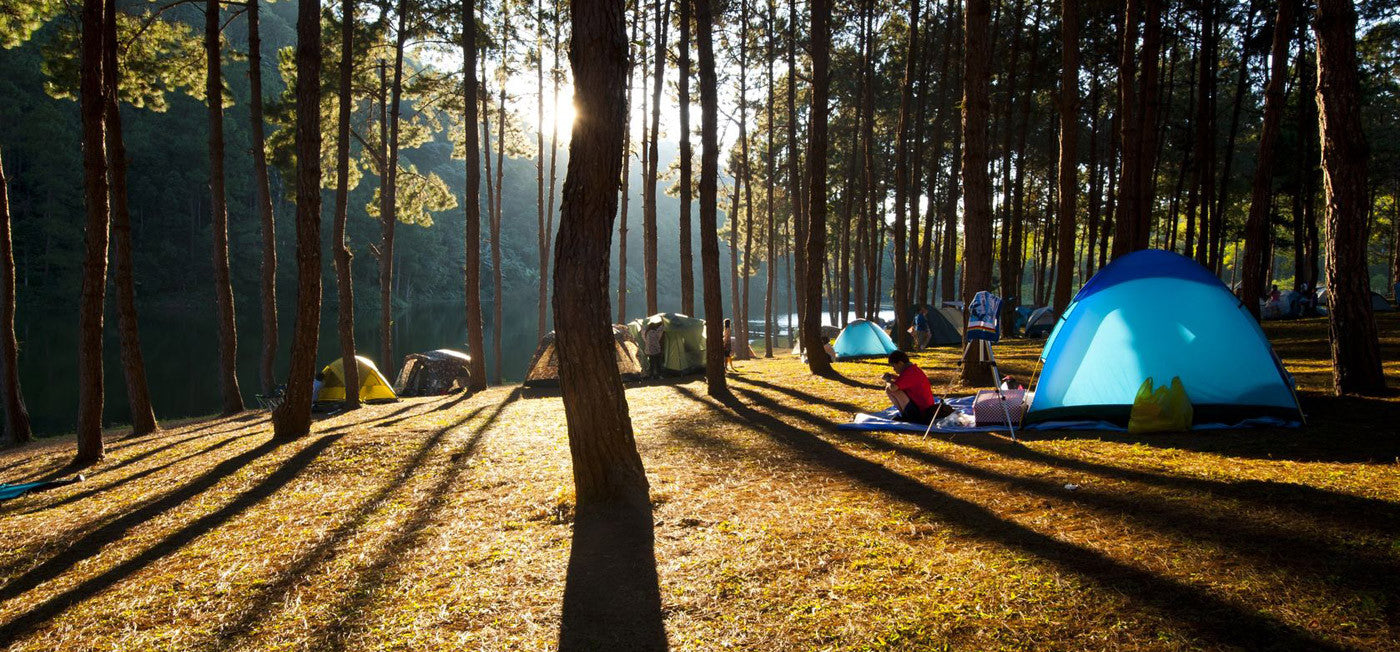
Preparing for your first expedition
Olivia Lee talks to Ian McCelland on his top tips
Ian McCelland is an experienced expedition leader. He has been working with students for years, giving them the right training on team-building, navigation and safety. Here are his top tips on how to get the most out of your first expedition.
Forgotten Essentials
Everyone knows to pack clothes, waterproofs and sleeping bags. But here are some essentials kids always forget:
- Vaseline (or an equivalent). One of the most common complaints from kids on these trips is chapped lips. With the combination of sun and wind, almost everyone suffers after a long day. Vaseline is great for this. The same goes for chapped legs — especially if kids aren’t used to walking for eight hours. Vaseline can help with blisters too, nourishing the skin underneath a plaster.
- Plastic bags, big and small. There’s nothing worse than putting wet clothes, wet dishes or leaky food into a bag with all your dry stuff. If you have plastic bags, you can keep it away from the rest of your things. Big bin bags are also excellent for waterproofing. I once had to rescue some kids because they got to camp and their sleeping bags were soaking wet — if they’d had a bin bag, they could have pulled it over their backpacks as soon as it started raining. I always recommend wrapping sleeping bags and clothes in bin bags anyway, but it’s good to have spares. They also act as umbrellas to supplement your raincoat, and make a useful rubbish bag at camp.
What Not To Pack
It is really important to pack wisely. Not only is space an issue, but anything you pack has to be carried on your back. Here are things which I recommended you leave behind:
- Cotton clothing. Many people don’t realise how bad cotton is when you’re hiking, and invariably kids turn up every year wearing cotton polos. The problem is they just don’t dry. When you sweat, or if it rains, your clothes stay damp for the rest of the hike.
- Makeup/perfume. This seems obvious, but there are always a few kids that bring it anyway. It’s heavy, it wastes bag space and everyone looks and smells bad anyway.
- Big bottles of shampoo and body wash. Year on year, kids come along with litre bottles that’ll last them months. You only need a really small amount of this stuff. Those little sample packs of shampoo you can get are perfect for short trips.
- Instant noodles. Many young people think of cup noodles when they picture camping food. They’re not a good choice. Aside from the fact that they have very little nourishment, the containers are also an awkward shape and take up a lot of space in your bag.
- Festival gear. I’ve seen kids turn up in wellies, converse trainers, festival tents or festival-appropriate clothing. They always regret it later.
Food Tips
Food is one of the most important things to think about for your expedition. It’s energy and gives you something to look forward to after a long day hiking, so make sure you choose food with the following qualities:
- Lightweight. No cans of food. No big, sloppy wet meals. I really recommend dehydrated or freeze-dried food.
- Quick. You don’t want to be sat for half an hour while your food cooks. It uses too much gas and means you have to sit and watch your friends eat first.
- Easy to open. I’ve seen too many kids scooping up rice from the ground after they burst open the bag trying to get into the top. Make sure it’s easy to open and can be used up in one go, save it spilling in your bag later.
- Easy to cook. You don’t want to be fiddling with different ingredients. I’ve seen kids trying to fry bacon and bread and it usually ends badly. Meals that just require hot water to cook are the best option.
- Tasty. Very obvious, but don’t just bring a bag of couscous or rice. You’ll get bored halfway through and it’ll make you feel empty.
Top Tips Before You Go
In the imortal words of Benjamin Franklin; “By failing to prepare you are preparing to fail”. Here are some tips to get ready for the big trip:
- Train. It sounds obvious, but lots of kids don’t train at all for their first overnight hike. If you’ve never walked eight hours straight before (which most kids haven’t) then how can you expect to do it on the day with a 40lb bag on your back? Train hard, trek easy — that’s my motto.
- Learn to read a map. You'll be responsible for navigating. It will save a lot of stress and wrong turns if you are confident with a map and a compass.
- Communicate. Most people don't set off on their first hike alone, but it still pays to get to know the people you're walking with first because it’ll only lead to arguments and personality clashes on the day if you don’t.
- Pack heavy stuff next to your back. When you come to pack, make sure the heavy things like your stove or spare water are close to your back, not the front of the bag. It’ll help with your balance and make the bag more comfortable to carry.
Top Tips For the Expedition
No matter how well you plan or how prepared you are, something will probably go wrong. But here are my tips to help it go a little bit smoother:
- Set up your tent correctly. Your tent might seem sturdy without the guy ropes, but they are essential to keep your tent in place. Make sure you peg th ropes in tight too — I’ve seen storms half-blow poorly staked tents away.
- Plan your cooking area very carefully. Most people picture a camp and they see tents around a fire. Kids try to replicate this image, setting their stoves up right in the middle of the tent area. That’s a bad idea. It means there is 360-degree access for someone to knock it over, and it happens all the time. It’s not only a fire hazard, but means someone has lost their dinner. My advice is to find a wall, or a tree, so that there is only 180-degree access. This will protect it from flailing legs and arms and also protect it from the wind.
- Do the dishes immediately. It’s easy when you're tired to leave your dishes until the morning, but by this point it’s going to be a nightmare to clean, especially when hot water is scarce. Do the dishes right away to avoid packing greasy pans back into your bag.
- Enjoy it. This is one of those big cliches, but it’s true. Overnight hikes are an opportunity to be totally independent. You get to explore the wilderness without adults, camp in nature, make decisions as a team, cook your own food. It’s fun, so enjoy it.

